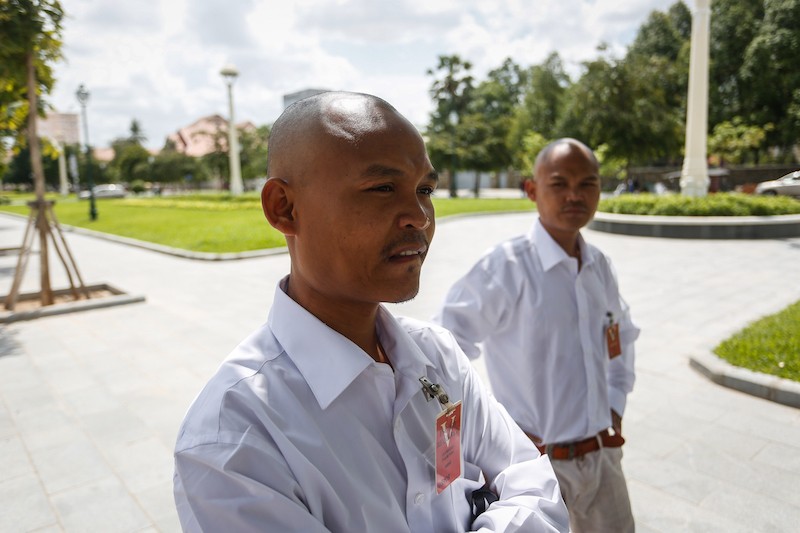Two Cambodian brothers have been granted temporary asylum in Thailand by the U.N. after fleeing Cambodia earlier this month, saying they feared for their lives because of a meeting they had with political analyst Kem Ley in the days before his murder.
Chum Hour and Chum Hout, twin brothers who have taken up a variety of human rights and environmental causes over the past few years, flew to Bangkok on July 14. They said they were in danger in Cambodia after giving an interview on July 10—hours after Kem Ley was gunned down inside a Phnom Penh convenience store—recalling three men they saw spying on them as they met with the analyst at the same store two days earlier.

Speaking from Thailand on Thursday, Mr. Hout said the Office of the U.N. High Commissioner for Refugees (UNHCR) in Bangkok issued them asylum cards valid for one year after they met with U.N. staff on Wednesday.
“There was a foreigner and a Cambodian translator; they interviewed us for about two hours,” he said. “The UNHCR expressed concern for our safety and told us where to stay and where to go for security reasons. The UNHCR issued us two separate cards.”
Mr. Hout sent reporters a photograph of the two cards, issued Wednesday, bearing their photos and an expiration date one year from now.
“This cardholder is a person of concern to the UNHCR, registered and documented pursuant to its U.N. General Assembly Mandate, and should not be involuntarily returned to his/her country of origin,” the cards say on the back. “Any assistance accorded to the cardholder is most appreciated.”
“I feel safe here because these two cards for me and my brother mean a lot because they protect us, and it means we are granted temporary asylum in Thailand,” Mr. Hout said. “With this card, I can go to a Thai police station to ask for help and the Thai police can help contact the UNHCR if we have any problems.”
He said the cards could be renewed, but that he and his brother were hoping to resettle in the U.S. He said that IKARE, a Cambodian-American association based in Minnesota, was paying for their room and board in Thailand and had already started working on the paperwork to bring them to the U.S.
IKARE did not immediately reply to a request for comment.
Mr. Hout said he and his brother hoped to return to Cambodia someday, but added that it would not be soon.
“Right now, the risk to our lives is very high, so we need to move to a third country first,” he said.
Vivian Tan, a spokeswoman for the UNHCR in Bangkok, said it was against policy to comment on individual cases.
In general, though, she said registering with the agency in one country did not guarantee that an asylum-seeker would be able to move to another.
“Resettlement to a third country is not a right,” she said in an email. “There are limited resettlement places around the world (only 0.66 percent of the world’s refugees were resettled last year), so we have to prioritize the most vulnerable cases for submission to resettlement countries. Ultimately it’s these countries that decide whether or not to accept someone for resettlement.”
Council of Ministers spokesman Phay Siphan said he had heard about the brothers’ asylum request and accused them of misusing Kem Ley’s murder to move overseas.
“A number of people take advantage from Kem Ley’s death,” he said, adding that he counted the Chum brothers among them.
If they believed they could identify people involved in the murder, Mr. Siphan said, they should instead cooperate with local authorities to catch them. “But they need proof,” he said.
The man arrested for Kem Ley’s murder claims to have acted in rage over a $3,000 loan the political analyst refused to pay back. But many Cambodians suspect that government officials ordered Kem Ley’s assassination in revenge for his frequent criticism of the CPP’s decadeslong rule. Prime Minister Hun Sen has denied responsibility.
In the days after the murder, Kem Ley’s widow, Bou Rachana, said she feared for the lives of herself and her four children, and also hoped to leave Cambodia.
A Cambodian community in Australia has offered to help her resettle. Contacted on Thursday, Ms. Rachana said she had not yet decided whether to move to Australia or anywhere else.



